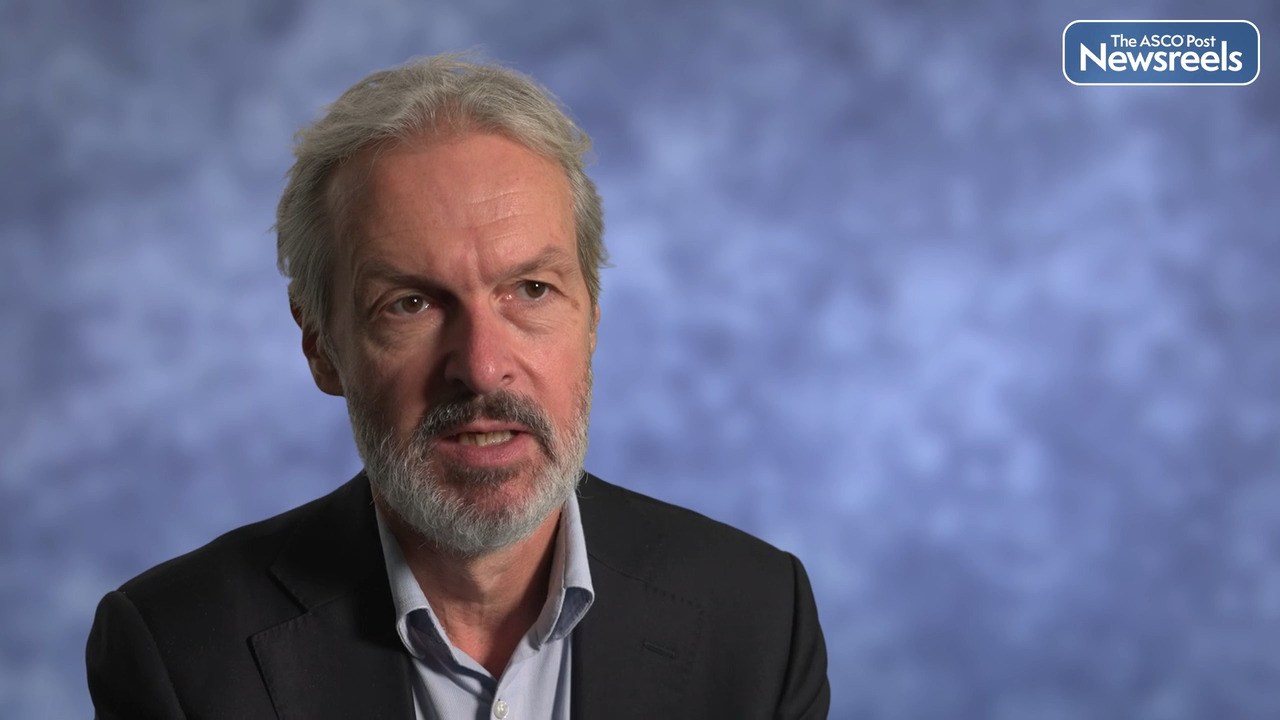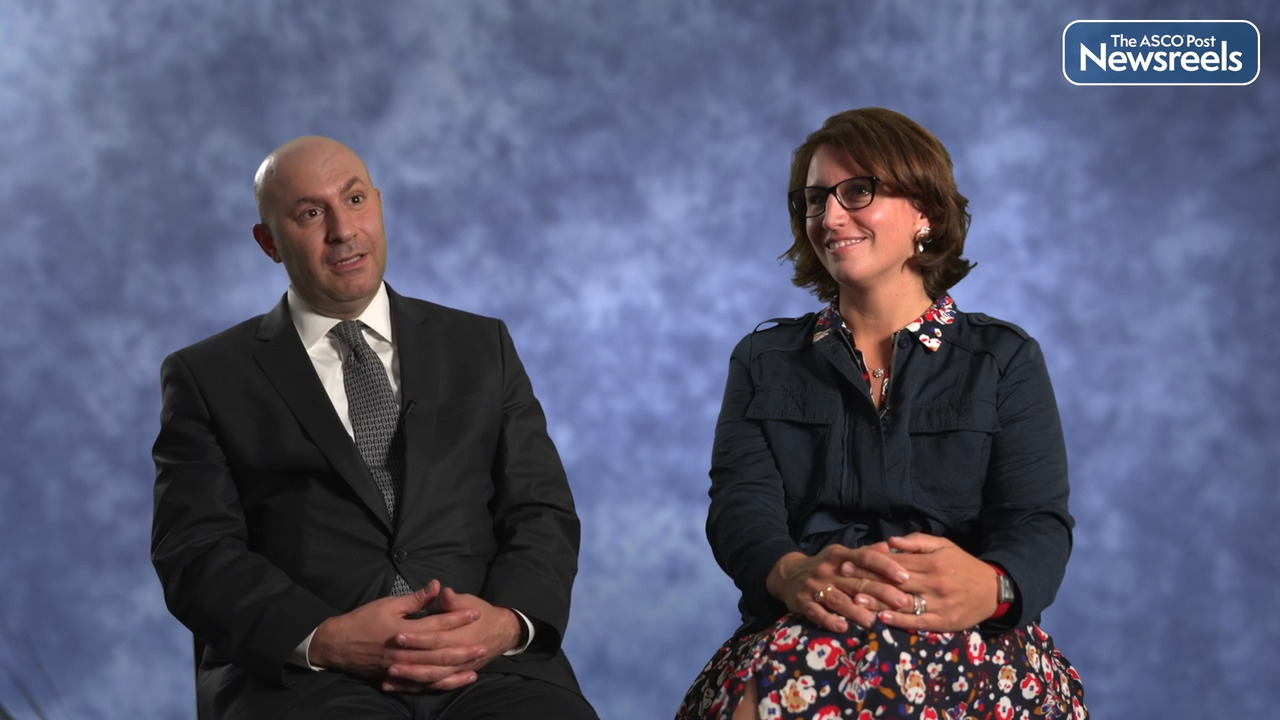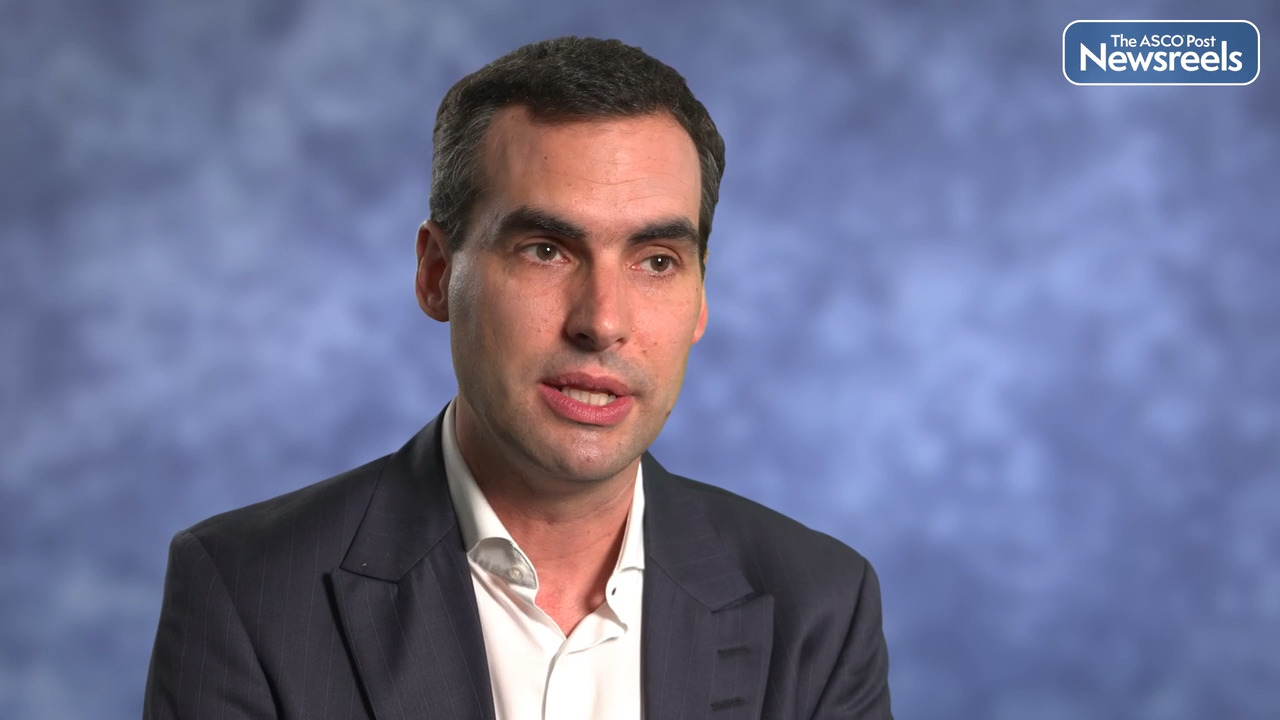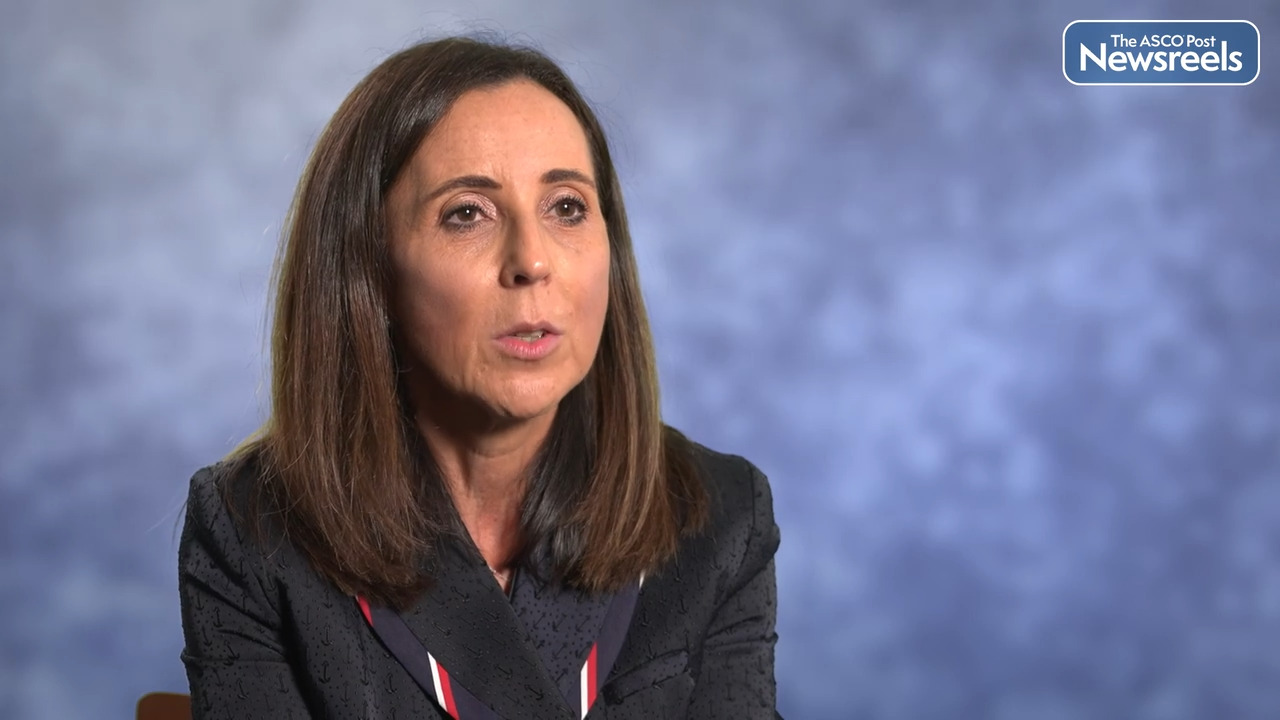Related Videos
Axel Bex, MD, PhD, on Renal Cell Carcinoma: Phase III Results With Atezolizumab as Adjuvant Therapy
Axel Bex, MD, PhD, of the Netherlands Cancer Institute, discusses phase III findings from the IMmotion010 study, which evaluated the efficacy and safety of atezolizumab vs placebo in patients with renal cell cancer who are at high risk of disease recurrence following nephrectomy (Abstract LBA66).
Toni K. Choueiri, MD, and Laurence Albiges, MD, PhD, on RCC: Recent Phase III Data on Cabozantinib, Nivolumab, and Ipilimumab From the COSMIC-313 Trial
Toni K. Choueiri, MD, of the Dana-Farber Cancer Institute, and Laurence Albiges, MD, PhD, of France’s Gustave Roussy Cancer Centre, discuss phase III findings showing that cabozantinib in combination with nivolumab and ipilimumab reduced the risk of disease progression or death compared with the combination of nivolumab plus ipilimumab in patients with previously untreated advanced renal cell carcinoma of IMDC (the International Metastatic RCC Database Consortium) intermediate or poor risk. However, the combination of cabozantinib, nivolumab, and ipilimumab vs nivolumab plus ipilimumab did not demonstrate an overall survival benefit to patients (Abstract LBA8).
Jonathan E. Rosenberg, MD, on Urothelial Cancer: Results From EV-103, Cohort K on Enfortumab Vedotin and Pembrolizumab
Jonathan E. Rosenberg, MD, of Memorial Sloan Kettering Cancer Center, discusses recent findings on the safety and antitumor activity of enfortumab vedotin-ejfv given intravenously as monotherapy or in combination with pembrolizumab to previously untreated cisplatin-ineligible patients with locally advanced or metastatic urothelial cancer (Abstract LBA73).
Bernd Kasper, MD, PhD, on Desmoid Tumors: Results on Nirogacestat vs Placebo
Bernd Kasper, MD, PhD, of Germany’s Mannheim Cancer Center, discusses phase III data from the DeFi trial, the largest study conducted to date for patients with desmoid tumors. The trial showed that the gamma secretase inhibitor nirogacestat demonstrated improvements in all primary and secondary efficacy endpoints. Although considered benign because of their inability to metastasize, desmoid tumors can cause significant morbidity and, occasionally, mortality in patients (Abstract LBA2).
Ana Oaknin, MD, PhD, on Cervical Cancer: New Findings on Cemiplimab in Recurrent or Metastatic Disease
Ana Oaknin, MD, PhD, of Barcelona’s Vall d’Hebron University Hospital, discusses an analysis of long-term survival from the EMPOWER-Cervical 1/GOG-3016/ENGOT-cx9 trial. Cemiplimab-rwlc is the first immunotherapy to demonstrate an overall survival benefit as a second-line monotherapy for patients with recurrent or metastatic cervical cancer previously treated with platinum-based chemotherapy but not immunotherapy. The benefit was sustained in this population (Abstract 519MO).





